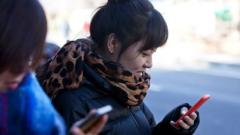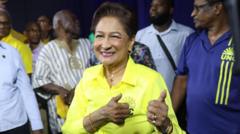In a period marked by turmoil, South Korea is navigating an unprecedented political crisis following the impeachment of its elected leader, Yoon Suk Yeol, due to a controversial martial law declaration. This situation has resulted in a rapid turnover of acting presidents, with the nation now relying on Lee Ju-Ho, the education minister, to lead the government.
South Korea's Political Crisis Deepens: A Nation in Uncertainty

South Korea's Political Crisis Deepens: A Nation in Uncertainty
As South Korea faces its third acting president in five months, the upcoming election is clouded by legal doubts and political maneuvering.
Moreover, as the country heads toward the presidential election scheduled for June 3rd, anticipation mixes with apprehension, particularly surrounding the candidacy of Lee Jae-myung, the current front-runner from the Democratic Party. With legal questions surrounding his ability to run and potentially serve, voters are left in a state of uncertainty. Compounding this challenge, Han Duck-soo, the most recent prime minister, has announced his intention to run for president as well, although he must navigate intra-party rivalry within the People Power Party to gain the necessary support.
As the political landscape remains tumultuous, South Korea's path toward stability appears increasingly complex, with each candidate offering differing visions amid accusations and legal entanglements. The unfolding scenario raises questions about the resilience of South Korean democracy and the potential return to political stability in the region.
As the political landscape remains tumultuous, South Korea's path toward stability appears increasingly complex, with each candidate offering differing visions amid accusations and legal entanglements. The unfolding scenario raises questions about the resilience of South Korean democracy and the potential return to political stability in the region.






















